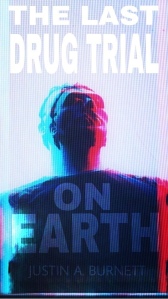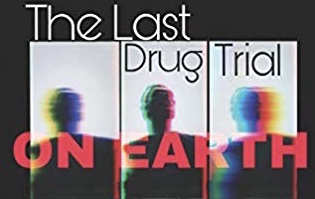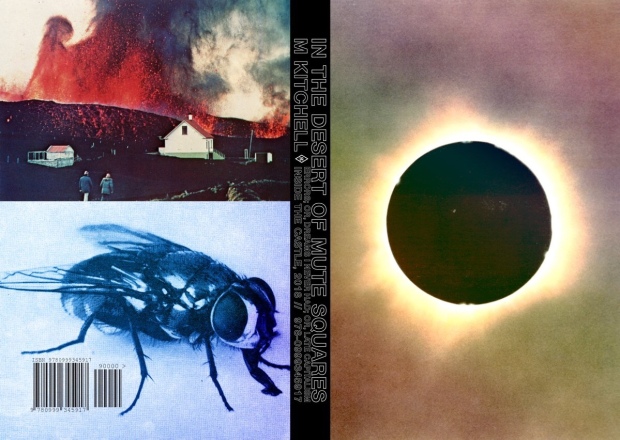by
Daulton Dickey.
Ladies and gentlemen, boys and girls, step into any bookstore or library and you’re bound to discover at least one book professing to be capital-t the underscored book to learn how to write a book that publishers and agents and readers and Hollywood producers and the Dalai Lama and maybe the Pope or some low-rent Mafioso will recognize and idolize and adore. Fiction, according to the reality in which these writers write, is an algorithm. Replace variables with values and, viola, book is done. Sale is imminent.
And that might work for some people. But if you have integrity, then you should buy or borrow that book, tear out each and every page, and use those pages to roll cigarettes or joints or to wipe your ass.
Inhale the words fermenting on the pages.
Or cover them with shit and piss.
Those rules are better to inhale and exhale, they’re better as permanent scars on your lungs, than they are to absorb and incorporate into your writing.
Now let’s make a distinction. Some rules are useful, such as word economics or showing in lieu of telling.
I’m talking about structure.
I’m talking about form.
I’m talking about what information is necessary, what isn’t—but I’m modifying it: ambiguity and disconnection constitute important information as well.
I’m talking about the algorithms writers and agents and editors and authors of ‘How-to’ books drill into your head.
The algorithm of fiction is what we want to avoid.
How else are we going to invent new ways of telling stories—and new ways of seeing ourselves—if we stick to the same tired rules?
Which leads to a question: How do we invent new forms of storytelling?
Which leads to Step #1:
Experiment. Break the mold. Try to write in new ways, try to shake things up—to use a cliché—try to change how sentences and paragraphs and chapters flow. Try to alter what information you find necessary and what information you don’t find necessary. (more…)






 Death surrounds Sarah and Daulton. While grieving for their loved ones, they each must navigate a universe where time isn’t linear, where memories and fantasies collide and merge with reality. The dead haunt them, the world shifts and changes, and time disintegrates. Slipping in and out of the present, they relive moments from their past—and they never know when they’re in the present. As the shifts increasingly dominate their lives, as their grips on reality loosen, Sarah and Daulton struggle to find a way to orient themselves in the present, to escape the infinite loop of pain, suffering, and confusion. If they can’t find a way out, then will they be trapped in a kaleidoscope of torment and grief?
Death surrounds Sarah and Daulton. While grieving for their loved ones, they each must navigate a universe where time isn’t linear, where memories and fantasies collide and merge with reality. The dead haunt them, the world shifts and changes, and time disintegrates. Slipping in and out of the present, they relive moments from their past—and they never know when they’re in the present. As the shifts increasingly dominate their lives, as their grips on reality loosen, Sarah and Daulton struggle to find a way to orient themselves in the present, to escape the infinite loop of pain, suffering, and confusion. If they can’t find a way out, then will they be trapped in a kaleidoscope of torment and grief? 

 Death surrounds Sarah and Daulton. While grieving for their loved ones, they each must navigate a universe where time isn’t linear, where memories and fantasies collide, merging with reality. The dead haunt them, the world shifts and changes, and time disintegrates. Slipping in and out of the present, they relive moments from their past—and they never know when they’re in the present. As the shifts increasingly dominate their lives, as their grips on reality loosen, Sarah and Daulton struggle to find a way to orient themselves in the present, to escape the infinite loop of pain, suffering, and confusion. If they can’t find a way out, then will they be trapped in a kaleidoscope of torment and grief? An experimental novel about death, the nature of memories, and reality, Flesh Made World thrusts readers into a hallucinogenic universe where space and time constantly unravel.
Death surrounds Sarah and Daulton. While grieving for their loved ones, they each must navigate a universe where time isn’t linear, where memories and fantasies collide, merging with reality. The dead haunt them, the world shifts and changes, and time disintegrates. Slipping in and out of the present, they relive moments from their past—and they never know when they’re in the present. As the shifts increasingly dominate their lives, as their grips on reality loosen, Sarah and Daulton struggle to find a way to orient themselves in the present, to escape the infinite loop of pain, suffering, and confusion. If they can’t find a way out, then will they be trapped in a kaleidoscope of torment and grief? An experimental novel about death, the nature of memories, and reality, Flesh Made World thrusts readers into a hallucinogenic universe where space and time constantly unravel. Daulton Dickey is a novelist, poet, and content creator currently living in Indiana with his wife and kids. He’s the author of
Daulton Dickey is a novelist, poet, and content creator currently living in Indiana with his wife and kids. He’s the author of 
 Encountering lobster- or lizard-human hybrids occurs frequently when you’re an imagination masquerading as meat. I bumped into one or the other at least once a day; and whenever I do, they say, “Daulton, why do you insist on writing easy-to-read bestsellers?” To which I reply, “I am a professional. I go where the people lead me. If they want action, I give them action. If they want spiders hatching in their ears, I cultivate brown recluses on their behalf. If they want corpses to replace rain and blanket the city in a violent storm, then so be it.”
Encountering lobster- or lizard-human hybrids occurs frequently when you’re an imagination masquerading as meat. I bumped into one or the other at least once a day; and whenever I do, they say, “Daulton, why do you insist on writing easy-to-read bestsellers?” To which I reply, “I am a professional. I go where the people lead me. If they want action, I give them action. If they want spiders hatching in their ears, I cultivate brown recluses on their behalf. If they want corpses to replace rain and blanket the city in a violent storm, then so be it.”
 The state of popular fiction, especially mainstream “literary fiction,” in the second decade of the twentieth century is one of complacency and uniformity. It’s as though someone filtered the concept of fiction and literary fiction through a sieve, and homogeneity is all that largely remains.
The state of popular fiction, especially mainstream “literary fiction,” in the second decade of the twentieth century is one of complacency and uniformity. It’s as though someone filtered the concept of fiction and literary fiction through a sieve, and homogeneity is all that largely remains.




